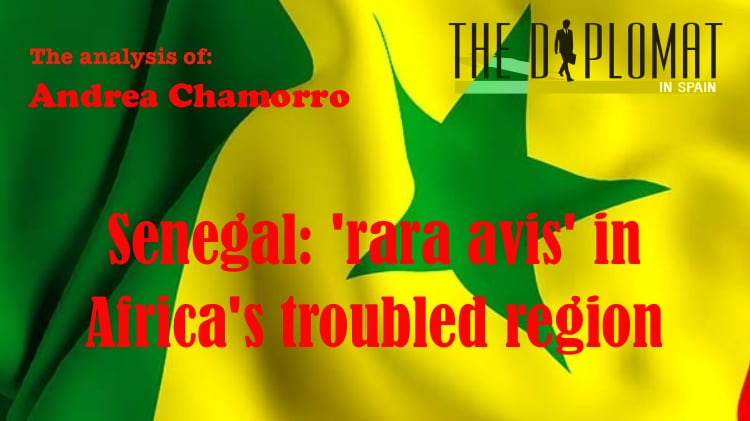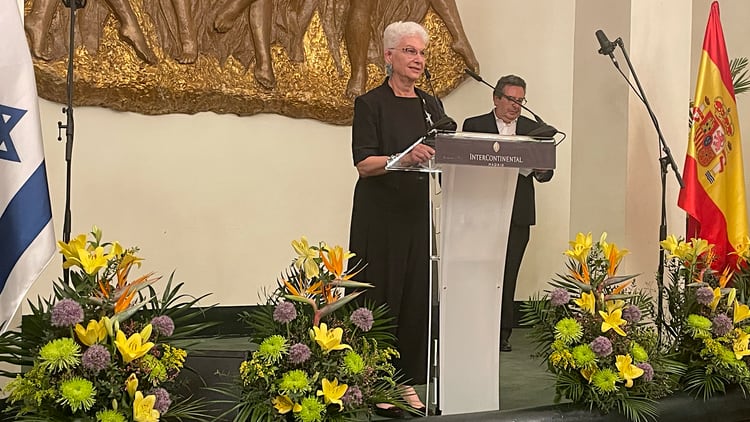SUMMARY
The new president of Senegal, Diomaye Faye, inherits a complex situation in a country that prides itself on being the only one in Africa that has not suffered civil wars or coups d’état. His election represents a hopeful democratic regeneration after twenty years of rule by the same elites. However, the business world observes with expectation the first steps of the new Executive, whose critical rhetoric against the West suggests a possible rapprochement with Putin’s Russia.
Andrea Chamorro / Fundación Alternativas
Since April 2, Senegal has had a new president: the opposition leader Diomaye Faye went in one month from sleeping in jail to living in the presidential palace in Dakar. The streets of the country’s main cities were filled with supporters of both Faye and the newly appointed Prime Minister, Ousmane Sonko. With the arrival of the opposition to power comes a replacement of a government in which the same elites have held presidential power for two decades. A period of change is beginning in the African country, but also a period of uncertainty as to the direction the executive will take.
Diomaye Faye’s government inherits a country with a complex situation. The political tension due to the delay of the elections and the imprisonment of opponents is still latent. However, the new president has promised to work to restore stability and democratic normality to the country. At the same time, he faces a delicate economic situation, in which inflation has soared in recent years and employment has declined. In his electoral program, Faye promised a profound restructuring of the economy, with the revision of contracts for the exploitation of raw materials and a significant state interventionism. The situation has driven part of the population to emigrate, both within and outside the African continent, in search of a better future. The promises of the government team bring hope for change, but the high expectations, if not fulfilled, can be a double-edged sword.
Faye and Sonko define themselves as “left-wing Pan-Africanists” with “anti-colonial thinking”. They have been particularly critical of the management of Senegalese resources and seek to review their exploitation, so that the wealth reverts to society. A considerable part of the companies operating in Senegal are foreign, and the turnaround intended by the new Executive keeps them expectant before the supposed structural changes that are coming and that could imply an important contractual revision, as promised by Faye in his electoral campaign, in matters such as fishing or oil. These multinationals would have felt more comfortable with a continuity embodied in the defeated Amadou Ba, former Prime Minister.
Since the coups d’état in the Sahel, African and extra-continental governments have been watching the armies with concern. However, although the Sahel and West African countries are closely connected, they do not follow the same dynamics. The Senegalese armed forces have seen their image badly damaged by the repression of recent years. However, despite the political instability experienced over the past two years, the army has never been mobilized against the government. It is important to note that the country has a strong culture of respect for the rule of law and the Constitution, and prides itself on being the only country in Africa that has not suffered civil wars or coups d’état. At the same time, society has become highly politicized in recent years, but the fact that there are no coup precedents and the social respect for the Magna Carta make military action such as those that have occurred in the Sahel difficult. The economy is one of the points of concern among the population, and occupies an important part of the program of the new candidate, who advocates State interventionism, but inherits an impoverished country with a negligent management of its natural resources.
The business world is watching with expectation the first steps of the new Executive, and foreign companies are well aware of Faye’s critical rhetoric against the West, especially against Paris, the former metropolis. For the time being, the president’s intentions are not clear, but in a supposed distancing from the Western powers, a rapprochement with Putin’s Russia could enter into the equation. On the other hand, there is a climate of tension between the Alliance of Sahel States and the Economic Community of West African States, of which Senegal is a leading partner, and which could worsen the situation in the area, although the emergence of Faye, a figure not so close to the West, could be the bridge of understanding that could help to unblock the situation.
Senegal is facing the change it has been looking for for years. A population fed up with the traditional elites has elected at the polls the country’s main opponents, who come with a wide range of reforms. In general terms, the country’s military and economic sectors remain expectant about the actions of the new government, respecting an electoral result that makes Senegal a rara avis in the convulsive African region.
 ANDREA CHAMORRO
ANDREA CHAMORRO
Analyst at Fundación Alternativas
Graduate in Political Science and Public Administration from the University of Salamanca, she holds a Master’s degree in International Relations and African Studies from the Autonomous University of Madrid. Analyst and assistant coordinator of the Africa Report of Fundación Alternativas.







